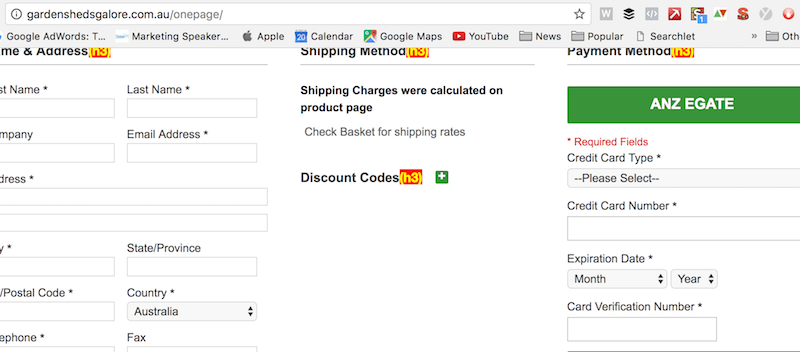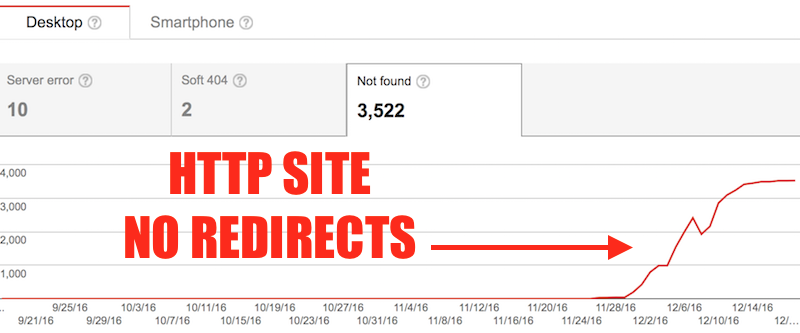When HTTPS Goes Wrong
Welcome back Rankers! Last show before the Christmas holidays. Today we’re going to learn what happens when moving to HTTPS goes wrong. So we all know by now that we have to work towards getting HTTPS across your entire site, as from January Google is going to start issuing warnings in the browser that states a site is not secure if you have a page that collects information such as credit card details or passwords. This will obviously affect your traffic, as people will flee a site that says it’s insecure.
SSL certificates aren’t expensive, so over the past week or so we’ve had a few clients that have told us their hosting companies will be doing SSL for them. Awesome work. However, if you get your hosting site to switch you to SSL, chances are you’ll lose a lot of your Google traffic.
Beware the Easy Road
In this example, when I add something to my shopping cart and proceed to the checkout, you can see that on the page that is requesting my credit card details, there is no HTTPS as shown in the browser. The information drop down box explains the warning, “Your connection to this site is not secure, etc.” At this stage, it is a warning box that you have to click on, but it will be more in your face once January rolls around.

One particular client moved to HTTPS and didn’t tell us. The web developer pushed them live and as you can see, we were faced with a mountain of errors. We had over 3,500 URLs not found, which is basically their entire site.

What happened was the hosting company applied the SSL certificate to the domain, but they failed to do any of the redirects. So the very minimum they had to do, they didn’t, instead just switching off HTTP. You have to redirect all of your HTTP traffic to the HTTPS equivalent page.
A Minefield of Potential Problems
You can’t, for example, just redirect everything to the home page of your HTTPS site. Each individual page needs to be redirected. We’d been happy with the progress of this client, but after the switch, BAM! Their stats plummeted. We’ve had a handful of people come to us lately and say that their hosting company can make the easy transition to HTTPS. No.

The other one that we’ve seen is having both live. This causes major duplication issues. The HTTP is live alongside the HTTPS site. Which page is Google supposed to rank? In most cases it will rank neither as it’s too confusing.
Be extremely careful about just switching HTTPS on. There is a lot to take care of. If you are on an Apache server or Nginx, you have to look at things like your Nginx config files, or your apache.ht access files to ensure there are no HTTP references in those files as well. There are many little things that can go wrong. So just be wary if your hosting company or web developer offers an easy transition to HTTPS.
Unless you have done this before, you may get yourself into trouble with your Google traffic. Hopefully that’s helpful. A huge thank you to everyone for your support this year. I wish you all a safe and happy Christmas and I’ll see you all in the New Year. Bye.

Jim’s been here for a while, you know who he is.


